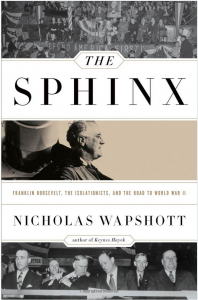 Senator Burton K Wheeler put the question best: If the war in Europe was America’s war, why was she not fighting it? It was the vital question of its day. Should America join the European war or not?
Senator Burton K Wheeler put the question best: If the war in Europe was America’s war, why was she not fighting it? It was the vital question of its day. Should America join the European war or not?
There are various approaches to history where wars are concerned. One is military history – who shot whom. Much more interesting is the political intrigue – who came out on top, and how.
After the Great War, there was a strong, not to say, dominant strain of isolationism, a huge apprehension of the dangers of getting into another European war.
The isolationists were a mixed bunch, comprising principled constitutionalists liberals, and American Firsters, through to appeasers, defeatists, anti-semites, and outright fascist sympathisers. The cast includes Charles Lindbergh, Joseph Kennedy, Henry Ford, William Randolph Hearst, Father Coughlin, not to mention the politicians including Wheeler. The broad outline of the story is fairly well known, and has been tackled piecemeal by other historians, but it takes Nicholas Wapshott to tell the full sweeping story in beautiful lucidity of how Roosevelt subtly dealt with each of his opponents and transformed public opinion, and in fact, triumphantly, came out on top. I spoke with him on the eve of publication.
Podcast: Play in new window | Embed




